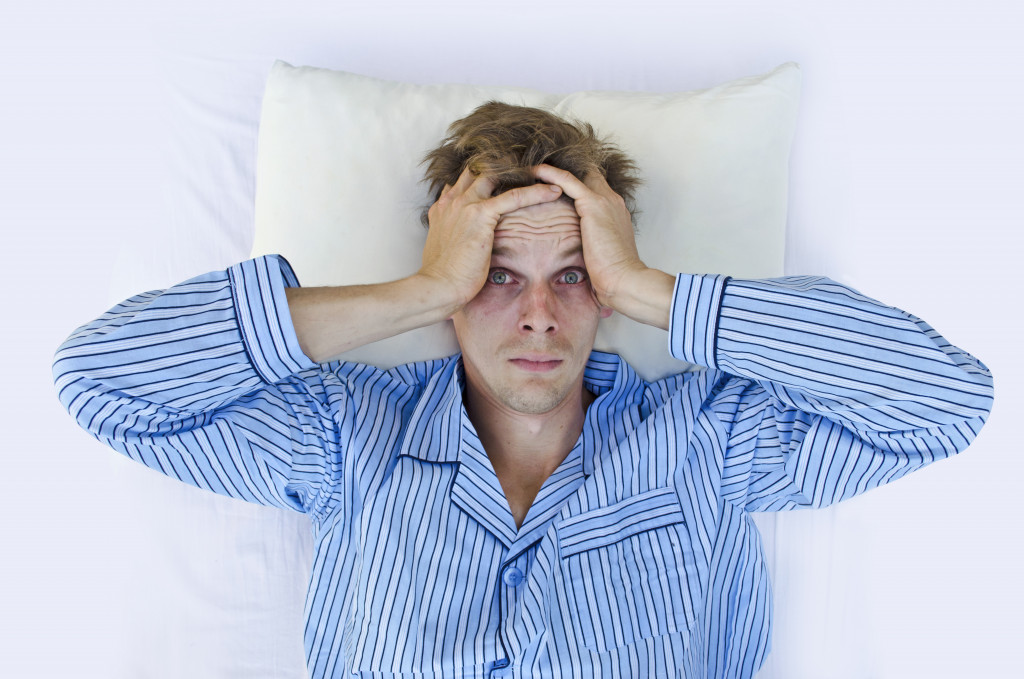- Bad sleeping habits can lead to various health problems, but understanding their causes can provide solutions.
- Causes can range from stress, uncomfortable bedding, and excessive caffeine or alcohol to irregular sleep schedules and health issues.
- Addressing these issues includes maintaining regular sleep schedules, creating a relaxing bedtime routine, and dealing with health issues.
- Creating a conducive sleep environment, limiting caffeine, alcohol, or nicotine, and regular exercise can also enhance sleep quality.
- If self-help measures don’t work, seek professional help to deal with persistent sleep problems.
Sleep is one of the body’s most important functions to function correctly. If you don’t get enough good quality sleep, it can harm your physical and mental health and overall well-being. Unfortunately, many people suffer from bad sleeping habits, leading to insomnia, fatigue, and various health problems. This blog post will explore some of the best tips for dealing with bad sleeping habits and improving the quality and duration of your sleep.
Causes of Bad Sleep:
There are many causes of bad sleep. Depending on what’s causing it, different solutions may be available. Some of the most common causes include:
a. Stress and anxiety
The hustle and bustle of everyday life can cause stress, leading to difficult sleep. High stress levels can increase cortisol production, making relaxing and falling asleep difficult.
b. Uncomfortable mattress or bedding
No matter how comfortable your bed seems, getting a good night’s rest can be more challenging if you don’t have the right mattress or bedding. An uncomfortable bed can be a major factor in poor-quality sleep.
c. Too much caffeine or alcohol
Caffeine and alcohol can disrupt your sleep cycles by increasing wakefulness at night. It’s best to avoid them if you’re having trouble sleeping.

d. Unhealthy or irregular sleep schedule
Sleeping at the same time every night and for the same amount of time ensures your body can get into a regular rhythm and sleep cycle. If this is disrupted, it’s more challenging to get high-quality sleep.
e. Health issues
In some cases, physical or mental health issues can also affect sleep. Conditions like sleep apnea, depression, and anxiety can all lead to poor sleep quality.
Tips for Dealing with Bad Sleep:
Now that you’ve identified some of the common causes of bad sleep, take a look at how to address them. Here are some tips for dealing with bad sleeping habits:
a. Stick to a regular sleep schedule:
Maintaining a consistent sleep schedule is key to optimizing your body’s internal clock and enhancing the quality of your sleep. Aim to go to bed and wake up at the same time every day, including weekends. Additionally, minimize daytime napping as it can disrupt your regular sleep pattern.
b. Create a relaxing bedtime routine:
Establish a routine before bedtime that helps you relax and wind down. This could be taking a warm bath, reading a book, or practicing yoga or meditation. You might want to avoid screens and bright lights that can stimulate your mind and make it harder to fall asleep.
c. Address health issues:
If physical or mental health prevents you from sleeping, it’s best to address the issue. For example, sleep apnea is a common condition that can be treated with CPAP therapy. But you can also employ orthodontic appliances that can help reduce snoring. Occlusal splints (or night guards) can help keep the airway open by preventing teeth grinding. You might also use an EMA (Elastic Mandibular Advancement) mouth appliance that keeps the jaw forward to open the airway.
d. Make your bedroom a sleep-friendly environment:
Your bedroom should be a relaxing, quiet, and dark environment that promotes sleep. Keep the temperature cool, use comfortable bedding, and remove any distractions that could disrupt your sleep, such as electronics or bright lights.
e. Avoid caffeine, alcohol, and nicotine:
These substances can interfere with your sleep patterns and make falling or staying asleep more difficult. Avoid consuming these substances before bedtime or limit your intake to earlier in the day.
f. Get regular exercise:
Regular exercise can help improve the quality of your sleep and increase the amount of deep sleep you get each night. However, it’s important to avoid exercising right before bedtime, as this can make it more difficult to fall asleep.

g. Seek professional help if necessary:
If you’re still struggling to improve your sleep habits, it may be time to seek professional help. Your doctor may be able to recommend medications or other treatments that can help you sleep better.
Following these tips can improve your sleep habits and enjoy a better quality of life. Remember, poor sleep can negatively impact your physical and mental health, so it’s important to prioritize good sleep habits. If you’re struggling with bad sleeping habits, try these tips to help you get the restful sleep your body needs.

